Melbourne organised crime figure David McCulloch deported
An organised crime boss and associate of key figures in Melbourne’s underworld including Tony Mokbel and slain gangsters Carl Williams and Lewis Moran has been kicked out of the country.
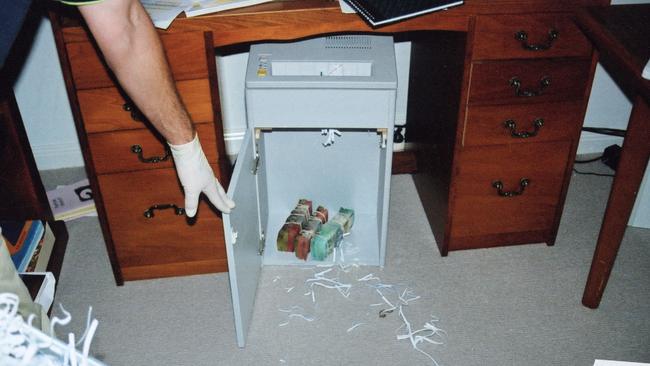
True Crime
Don't miss out on the headlines from True Crime. Followed categories will be added to My News.
Scottish-born organised crime boss David Steven McCulloch was kicked out of Australia today after decades of industrial-scale drug dealing. McCulloch, 70, was a known associate of many crime gang bosses, including bikie John Higgs, murdered Melbourne “Mr Bigs” Lewis Moran and Graham ‘The Munster’ Kinniburgh, jailed drug lord Tony Mokbel and slain drug trafficker Carl Williams.
He was released from jail without serving the full 14-year sentence he got following his 2005 conviction for trafficking commercial quantities of hashish and methylamphetamine.
Home Affairs Minister Peter Dutton later stepped in and ordered an investigation into McCulloch’s background.
Victoria Police provided Mr Dutton with a report which supported McCulloch being deported and included new information about McCulloch’s activities.
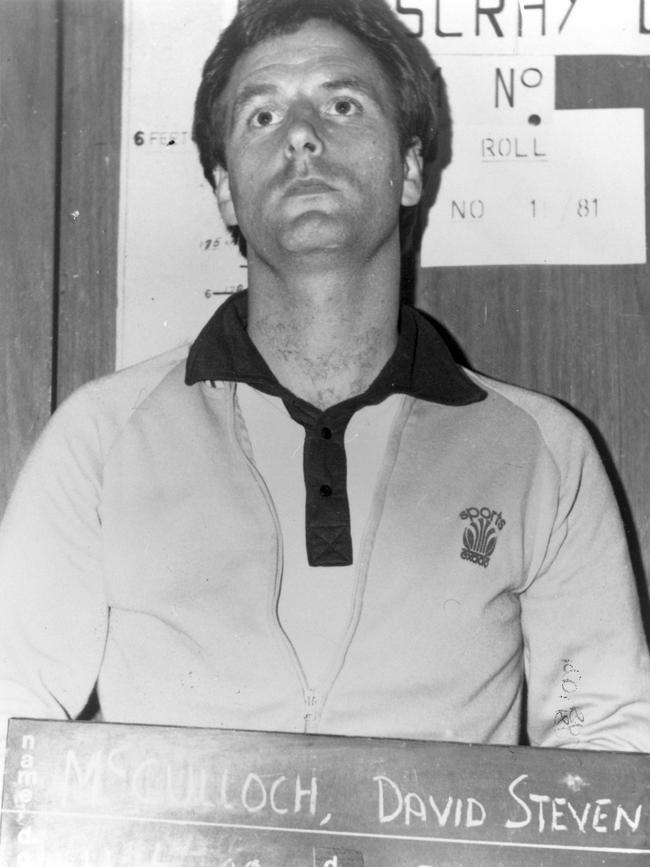
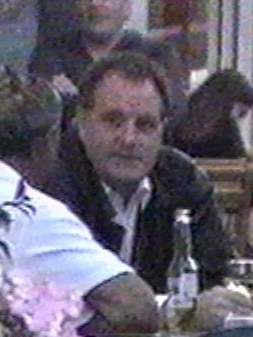
The Home Affairs department probe resulted in Mr Dutton recently writing to McCulloch to tell him his visa was being cancelled because of his past convictions and current association with various high-profile criminals.
Border Force officers arrested McCulloch, who came to live in Australia in 1972 at the age of 23, late last month and he was put on a flight back to the UK today.
Since being put into immigration detention, McCulloch has made public that he consented to being deported – what he didn’t say was he would have been forcibly removed if he hadn’t.
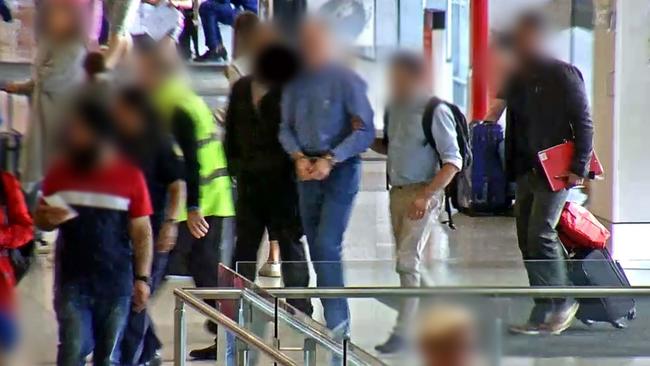
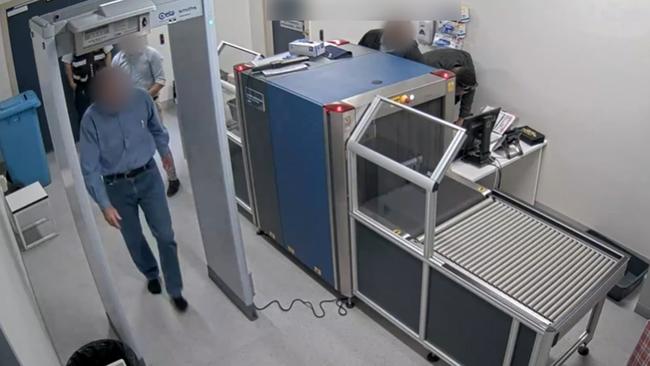
Commenting about McCulloch’s deportation and the nation’s tough stance on booting out convicted foreign-born criminals, Mr Dutton said there was no room in Australia for non-citizens who “involve themselves in this kind of serious activity’.
He also revealed McCulloch is among the 270 foreign-born organised crime figures who have had their Australian visas cancelled since November 2014.
“Our Government strengthened these laws to keep Australians safe,” Mr Dutton told the Herald Sun today.
“This sends a clear message that Australia is not open for business with organised criminal organisations.”
WHO IS DAVID MCCULLOCH?
After being charged with drug offences and getting bail, McCulloch had his case delayed for four years after making corruption claims against several Victoria Police officers.
Some of those being investigated had secret tape recordings of conversations with McCulloch that proved his allegations were false.
McCulloch accused police of planting evidence against him.
In sentencing him in 2005 to a maximum 14-year jail term for large scale drug trafficking, County Court Judge Roland Williams said McCulloch was “apparently the author of two years of futile investigation into the bona fides of various investigating police”.
“Your attitude from the outset was one of obstruction and complete, and possibly bordering on paranoia, hatred or hostility or antipathy towards drug squad police members,” the judge told McCulloch.
“You were the organisation and brains behind this operation.
“You, whilst enjoying the benefits of what seemed to be a fairly luxurious bayside apartment, controlled the activities of a number of others to bring about the sale into the community (or so you thought) of large quantities of drugs, commercial quantities of drugs.”
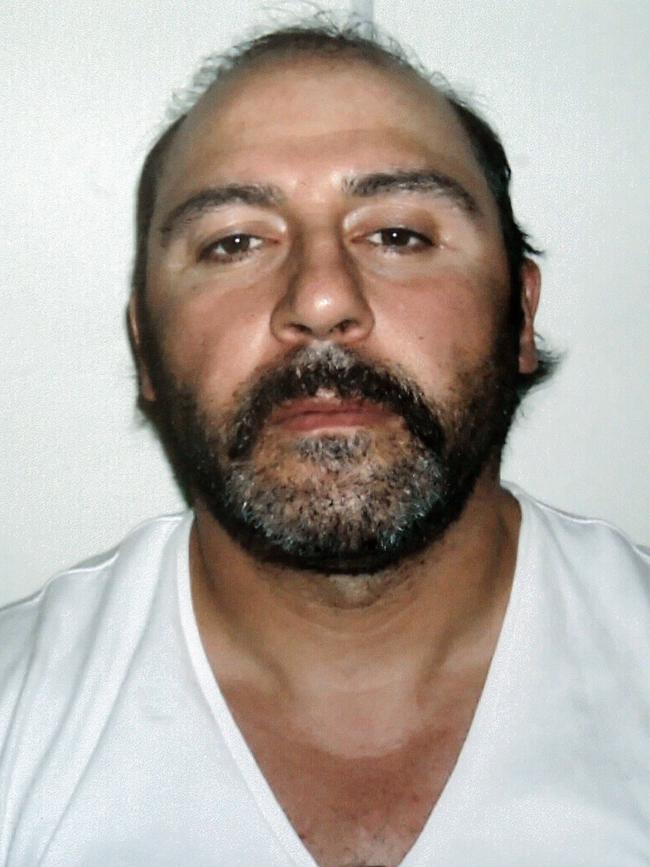
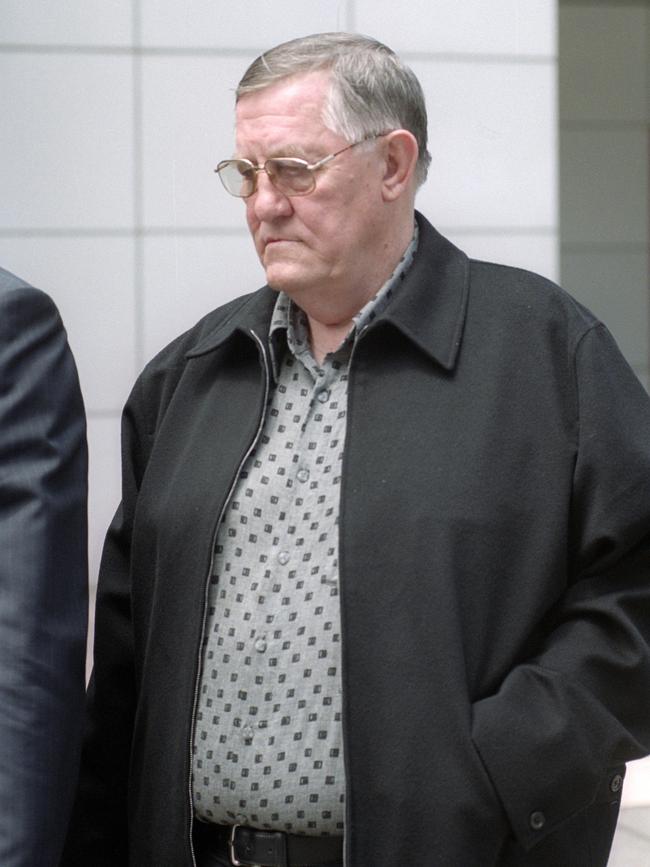
Judge Williams included the words “or so you thought” in his sentencing remarks because the drugs were actually sold to undercover police.
“I recall you boasting on one occasion on one of the tape recorded conversations – and these are not exact words – to the effect that you could get any amount of any drug you wanted,” the judge told McCulloch.
“It indicates a concerning level of familiarity with the drug world.
“A world which I note, of course, you have a past association with, having been convicted back in 1987 of trafficking in a drug of dependence, heroin, for which you were sentenced to 11 years.
“You were obviously again quite prepared to spread the drugs into the community for your own profit whilst, as I say, living in what appeared to be very pleasant circumstances with a bay view in Port Melbourne.”
Former Victoria Police chief commissioner Simon Overland blamed McCulloch for being part of an underworld plot to derail the Purana taskforce’s probe into Melbourne’s gangland killings by lobbying the State Government to establish a royal commission into the force.
The Herald Sun discovered McCulloch used his time on bail from May 2002 to instigate publicity designed to pressure the State Government into setting up a royal commission.
He hired private detectives, tried to cultivate journalists, lobbied politicians through others and leaked material about supposedly corrupt police.
Mr Overland told the Herald Sun in 2009 that he had feared the Government would bow to pressure for a royal commission before the Purana gangland taskforce reached the arrest phase of its underworld probe.
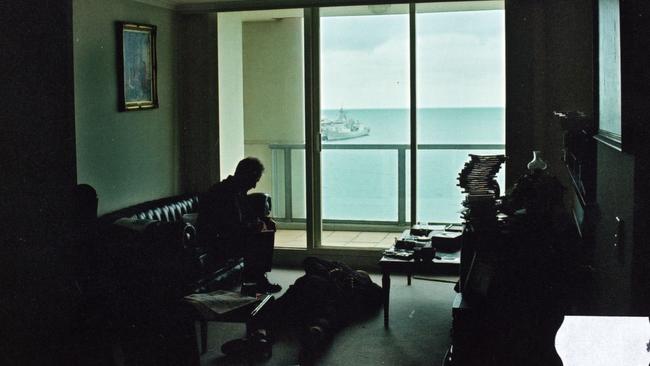
“If a royal commission was called, I knew that would effectively end the prospect of us really achieving what we needed to achieve,” he said.
“It would have served as an enormous distraction to the organisation. It would have cut across so much of what we were trying to do.
“I don’t know that many people realise this, but in the background a number of the very significant crooks that we were working on were absolutely agitating for a royal commission.
“They were feeding it because they saw that as the best way of slowing us down.”
The underworld plot to get a royal commission – in which McCulloch was a major player – ended up failing and Purana went on to arrest many of its targets and end Melbourne’s gangland war.
“The Government stuck with us and we are grateful that they did. The results speak for themselves,” Mr Overland said.
In a document written by McCulloch in jail after his 2005 drug convictions, he admitted having strong connections with underworld figures.
“At the time I was involved in real estate and found myself engaging with people interested in purchasing investment properties,” McCulloch said in the document, which has been seen by the Herald Sun.
“Essentially, I was aware that it was a form of money laundering that I was facilitating, but I ignored this fact due to the additional commission I was receiving.
“Eventually, I became aware of the fact that the funds provided for the purchase of the investments properties were derived from drug trafficking. This was around the early 1980s.”
MCCULLOCH’S GANGLAND TIES
McCulloch was arrested in 1985 and jailed for a maximum of 11 years after pleading guilty to heroin trafficking. He was released after serving just five years and immediately began mixing with major criminals again.
“I met and, in some instances, became friends with several of the recognised hierarchy of, I suppose, what is deemed organised crime,” McCulloch said.
“I dined with Graham Kinniburgh and Lewis Moran at the Flower Drum restaurant, had Japanese in the company of Mick Gatto, had Chinese in the company of Tony Mokbel and, through my personal business, inter alia, advised some of those people in their legitimate enterprises.
“I also enjoyed the company of George and Carl Williams.”
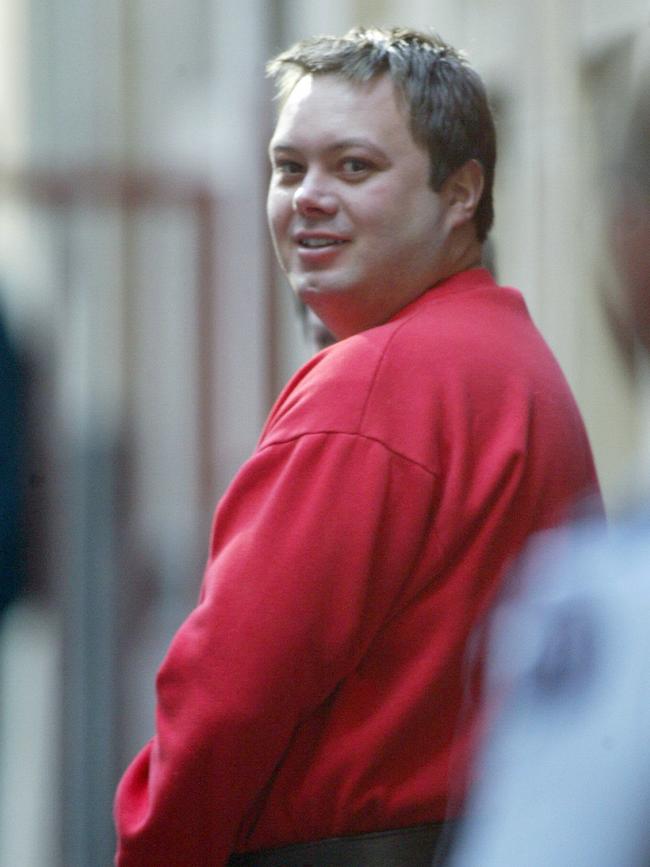
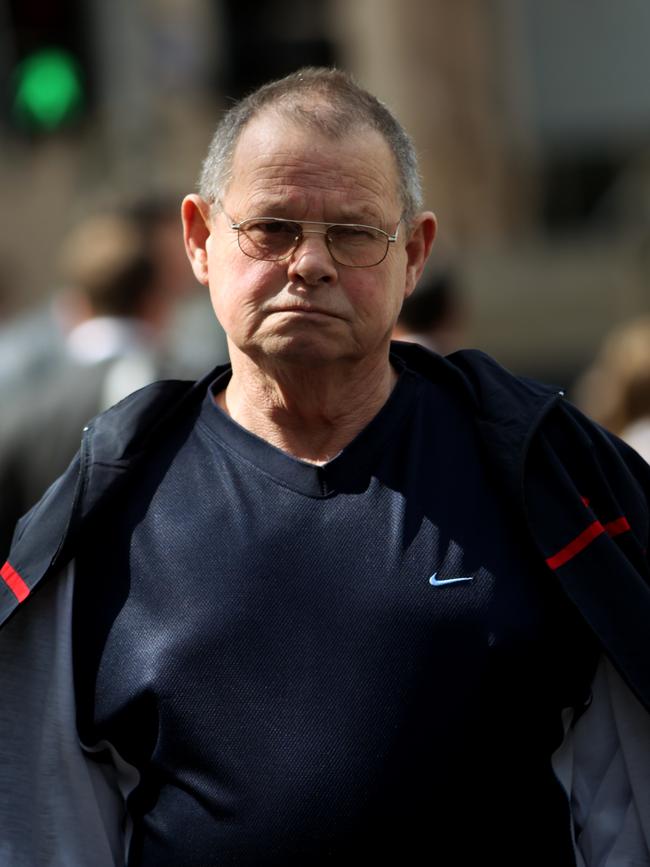
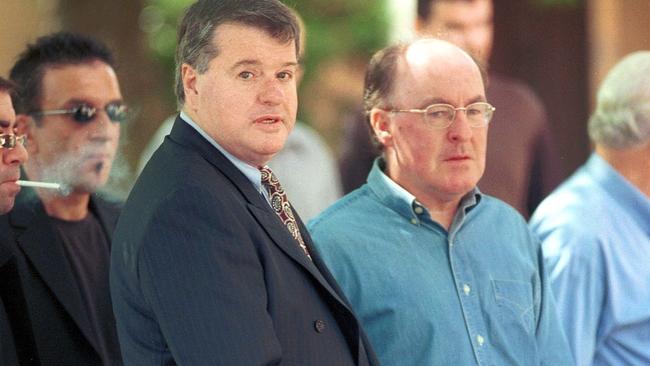
McCulloch bragged to an associate – who later gave evidence against him – that he could get unlimited quantities of just about any illegal drug the associate wanted.
He is also the self-confessed prime suspect in the notorious 1996 St Kilda Rd drug squad break-in and was named in the document that led to the murders of police informer Terrence Hodson, 57 and his wife Christine, 55.
The Hodsons were murdered in 2002 after a secret report detailing allegations Terence Hodson made to police was provided to prominent underworld figures – with police believing McCulloch was among those who distributed it.
Victoria Police intelligence reports reveal McCulloch spoke to an associate about the drug squad burglary. He said police files relating to a friend had been stolen during it.
“I’m the prime suspect for organising the break-in,” McCulloch admitted on December 23, 2000.
McCulloch is mentioned several times in the leaked police report blamed for causing the murder of the Hodsons at their East Kew home in May 2004.
The Hodsons were murdered soon after the police report fell into the hands of underworld figures. In the report, which has been seen by the Herald Sun, Hodson is recorded as having told police he discussed the drug squad burglary with McCulloch.
“It appears McCulloch still has files from St Kilda Rd,” the confidential Hodson police report said.
Hodson also accused McCulloch of ordering the death of a fellow criminal.
“Apparently when McCulloch had his stroke, Mr X (name deleted for legal reasons) thought he was going to die so he went to one of his stooks (hiding places) to locate drugs but they had already been moved,” the leaked Hodson police report said.
“He wants Mr X put off (killed).”
Hodson also told police he met McCulloch in May 2002, only days after McCulloch was released on bail over the charges he was eventually convicted of in 2005. Hodson said McCulloch indicated he would soon be drug dealing again.
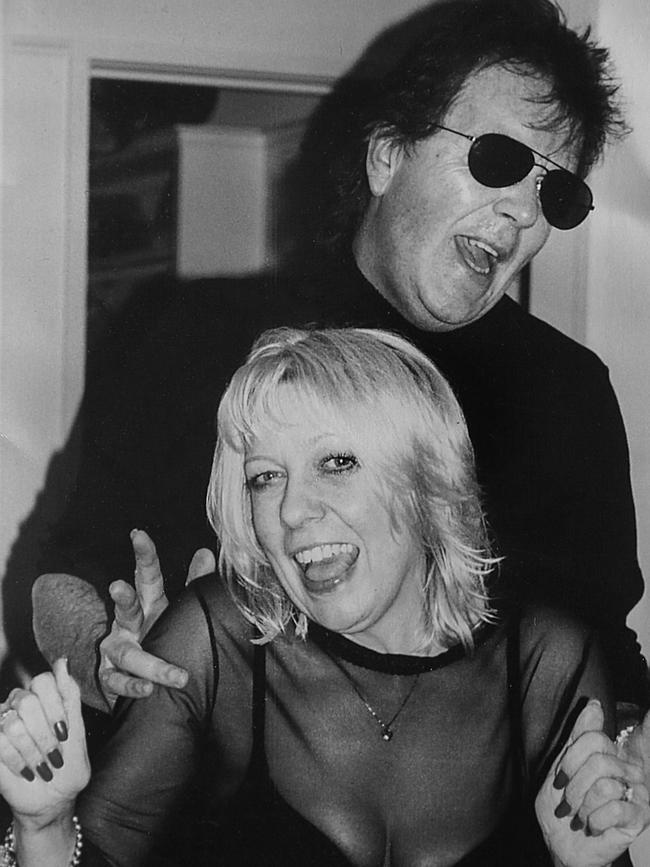
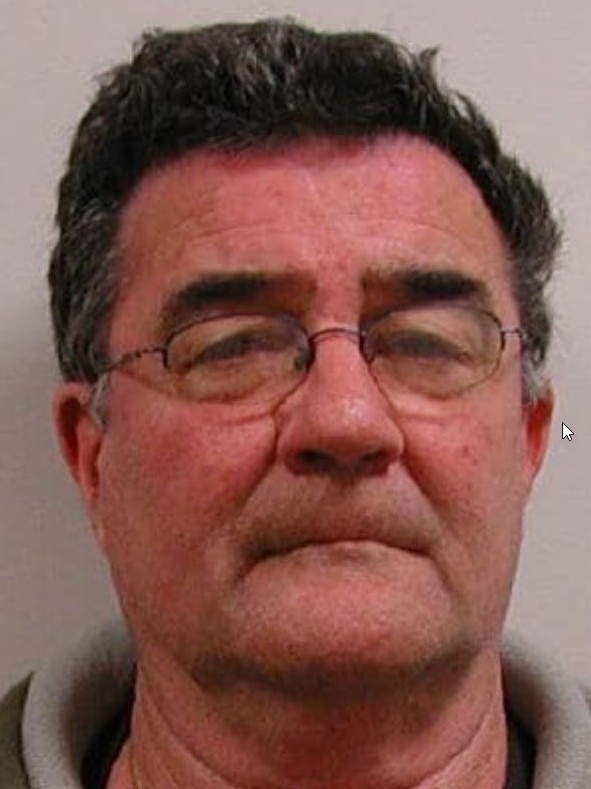
“When they finished the meeting and as they were walking away McCulloch gestured with his fingers (referring to amphetamine) and stated ‘don’t worry, mate, in four to five weeks we will be back in business’,” the confidential Hodson police report said.
Police believe at least one corrupt police officer was involved in either directing criminals how to gain entry to the St Kilda Rd offices – and where to find the documents they were after – or actually accompanied them and guided them through security checks at the building.
Hodson told police the aim of the drug squad burglary as so those involved could get the name and location of a key prosecution witness codenamed E2/92.
The only documents stolen during the St Kilda Rd burglary related to E2/92 and McCulloch’s partner in crime, former Black Uhlans bikie gang founding member John Higgs.
Police believe the drug squad was burgled so E2/92 could be identified, tracked down and killed before he could testify against Higgs.
E2/92, whose identity is still suppressed, was overseas in witness protection at the time of the burglary. He fled to another European country after Victoria Police superintendent Peter Halloran alerted him in a 2am phone call that the drug squad had been burgled. Supt Halloran warned E2/92 to get out of where he was as those who broke in had discovered his address.
Despite the scare, E2/92 bravely still gave damning evidence against Higgs by video from a secret location.
E2/92’s evidence directly put seven major criminals behind bars and investigations stemming from his information resulted in a further 129 people being charged and convicted.
Unlike most protected witnesses, E2/92 wasn’t a criminal seeking favours. He was a respectable businessman with a hatred for drugs who agreed to a police request to use his legit business association with Higgs to befriend Higgs and infiltrate Higgs’ drug gang.
He spent three years working undercover for police, gaining damning evidence against Higgs and others.
HOW HE WAS CAUGHT
Despite McCulloch’s attempts to remain hands off during his drug dealing to avoid capture, it was his greed that became his downfall.
Already a major manufacturer and dealer of illegal drugs, he just couldn’t resist trying to recruit one more customer.
That potential customer – who McCulloch had known for years – had such a hatred of drugs that he reported McCulloch’s approach to Victoria Police.
And so began Operation Ski, which gathered enough evidence to convince a County Court jury to find McCulloch, 56 at the time, guilty of commercial drug trafficking in 2005.
The offer of help from McCulloch’s associate was most welcome by police.
McCulloch had long been considered a big player in the Australian illegal drug scene.
McCulloch was very close to Moran crime family patriarch Lewis Moran but had a falling out after Lewis’s son Jason demanded $290,000 from McCulloch to help pay Lewis’s legal fees after Lewis was arrested on drug charges in October 2002.

The demand for cash by Jason Moran prompted McCulloch to jump camps and switch his allegiance to a rival drug gang.
Lewis and Jason Moran were both killed during Melbourne’s gangland war.
Undercover police surveillance teams saw McCulloch associating with various crime chiefs over the years, but he was careful not to say or do anything to implicate himself.
“He seemed to have learned a lesson from being busted in 1985 over his heroin dealing,” the then Operation Ski member Sen-Det Vic Anastasiadis told the Herald Sun in 2005.
“Since getting out of jail on the heroin conviction he became careful to the point of paranoia about meeting and dealing with people he didn’t know.
“McCulloch was equally paranoid about talking on the telephone, being under surveillance and having his gang infiltrated by undercover police.
“He made a point of not getting his hands dirty by actually handling the drugs himself – all of which made him very difficult to gather evidence on.
“Then he made the mistake of offering to deal drugs with a bloke he thought he knew well enough that he wouldn’t dob him in. Big mistake.”
The anti-drug associate was so disgusted by the approach that he agreed to buy drugs from McCulloch and his gang while wired-up and under the watchful eyes and ears of police.
“That was an incredibly brave thing to do,” Sen-Det Anastasiadis said in 2005.
“He had many meetings with McCulloch and McCulloch gang members, some of them very violent men.
“He went into those meetings wired up to secretly record conversations.
“If he had been caught, I dread to think what would have happened to him.
“This was a classic example of a community-minded informer. He was opposed to drugs and was in a position to help police catch a major drug dealer and decided to do so.”
McCulloch first tried to recruit the informer to sell drugs after meeting him at a Hardware St cafe in Melbourne on December 12, 2000.
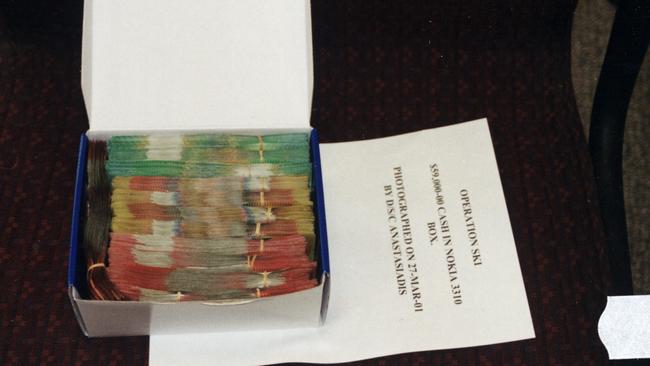
Ever wary of being bugged, McCulloch suggested the pair go for a walk.
“He asked me what could I sell,” the informer said.
“I then asked him to explain himself as I still wasn’t 100 per cent sure what he was talking about. He then said ‘speed, smoke, smack, what’s your contacts’?
“By these terms that he used I understand speed to be amphetamines, smoke to be marijuana or hashish and smack to be heroin.
“He then said that speed seems to be the go at the moment, that he had plenty of it and that he could give me as much as I wanted on credit.
“He then said that he could set me up in my own business whereby he could supply me with the drugs and that I wouldn’t be under any pressure to pay him until I had sold what I was supplied with.”
McCulloch later told the informer in a telephone call that he would not personally deliver the drugs as “you know very well that I sit at the executive end of the table”.
The informer took delivery of a 1kg block of hashish on January 25, 2001, from McCulloch gang member Mario Stumpo.
An undercover police officer was later introduced to McCulloch gang members by the informer as the person who was helping him distribute the drugs.
During the next few weeks the undercover officer spent $132,000 buying 14.8kg of hashish, 5155 methylamphetamine tablets and 28 grams of amphetamine powder during 11 drug deals.
Each deal was secretly recorded and watched by Operation Ski officers.
THE FINAL DEAL
The last deal was at 10.54am on March 28, 2001, when the undercover officer gave Stumpo $59,000 in cash packed inside a Nokia mobile telephone box and received 2000 amphetamine-based ecstasy tablets and 4kg of hashish in return.
Police watched as Stumpo then went back to his Altona North home and listened as he telephoned McCulloch at 11.25am and arranged to meet at McCulloch’s house.
The court was told during McCulloch’s trial that Stumpo arrived at McCulloch’s home in Beach St, Port Melbourne, at 11.44am and police were still watching three minutes later when McCulloch, Stumpo and fellow gang member Allan John Cotter left the luxury apartment and got into McCulloch’s silver Jaguar.
With ample evidence McCulloch and his gang were dealing in commercial quantities of hashish and amphetamines, police moved to the arrest phase of Operation Ski.
They intercepted McCulloch’s Jaguar as he was driving along Beaconsfield Parade in Albert Park with Stumpo and Cotter at 11.51am and arrested all three.
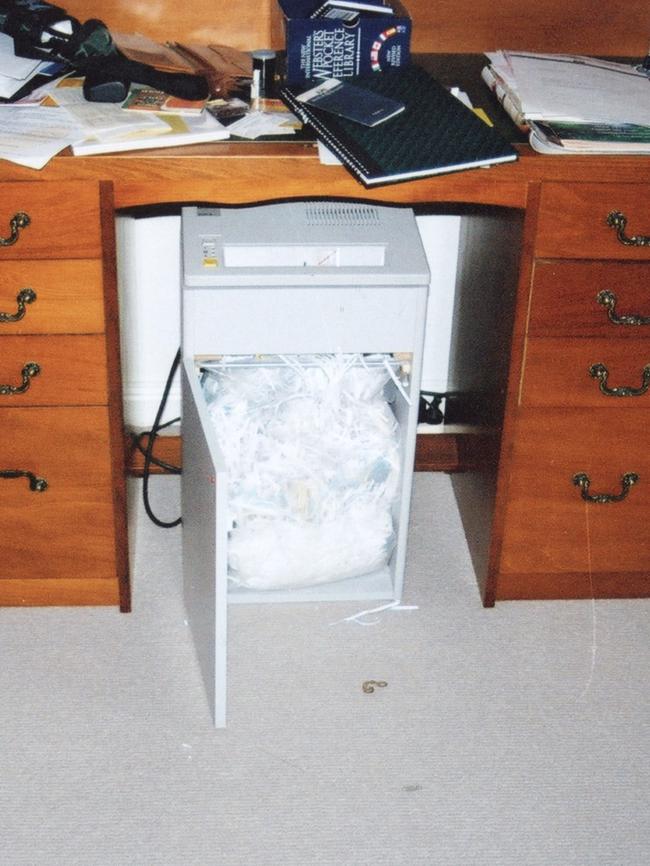
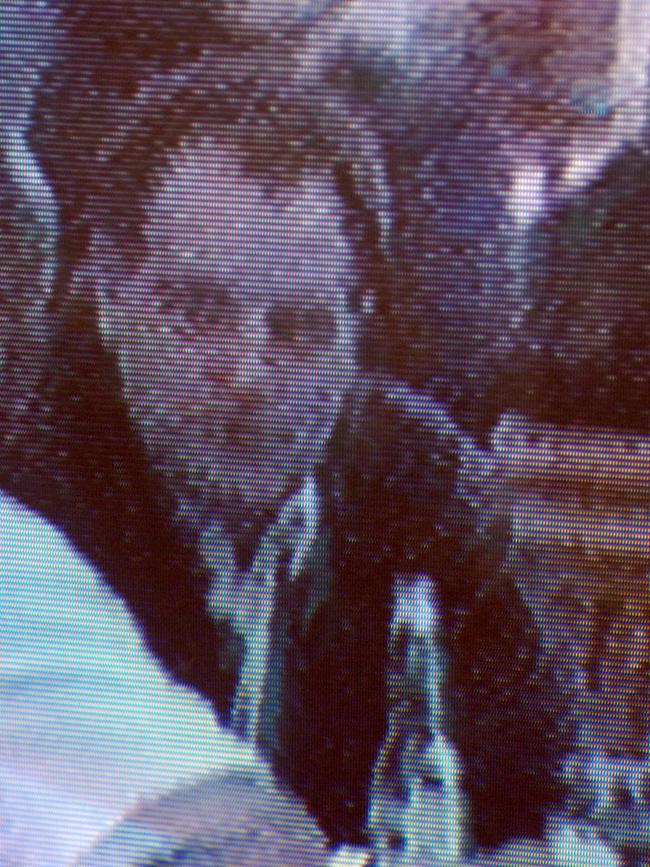
The court was told that McCulloch had $340 on him that police later identified as having come from the batch of $59,000 given to Stumpo that day to buy drugs. Stumpo had $200 on him from the same batch.
Police then took McCulloch back to his Port Melbourne home to search it. McCulloch was not too happy and as police opened the door he headbutted Det-Sgt Marty Allison.
The court was told during McCulloch’s trial that police found $51,460 in cash hidden inside McCulloch’s shredding machine. The serial numbers proved it was part of the $59,000 used by the police undercover officer to buy hashish and amphetamine-based pills earlier that day.
They also found a piece of paper bearing the name Mario and various monetary figures.
Police then went to search Mario Stumpo’s home and found the Nokia mobile telephone box the undercover officer had used to store the $59,000.
The top of the box contained impressions of handwriting which were identical to the piece of writing on the piece of paper bearing calculations found in the possession of McCulloch.
Evidence suggests Stumpo rested a piece of paper on top of the Nokia box while he wrote down his calculations of who was owed what from the drug dealing.
The court was told Stumpo took his share of $7200 before delivering the remaining $51,800 to McCulloch – also providing McCulloch with the slip of paper containing his handwritten calculations.
This corroborating evidence of Stumpo and McCulloch’s connection to the cash paid for the drugs helped convince the jury to return guilty verdicts.
A ‘CUNNING, POISONOUS INDIVIDUAL’
Sen-Det Anastasiadis said McCulloch was a control freak who insisted on everything being done his way.
“He is one of the most manipulative, cunning and poisonous individuals I have ever dealt with,” he told the Herald Sun in 2005.
“His controlling nature even extended to overriding the instructions of doctors caring for his sick mother.
“McCulloch worshipped his mother to the extent it was almost unhealthy.
“He was spending about $8000 a week on around-the-clock nursing care for her.
“Yet such was his controlling nature that he would interfere and instruct nurses to ignore instructions given by doctors in relation to upping or lowering her dosage of drugs.
“He thought he knew best about everything, including what drugs his sick mother should have. McCulloch made threats to police members following the death of his mother.
“He blamed them in some way and vowed to avenge her death.
“Not that I am necessarily qualified to make this judgment, but I reckon he possesses all the traits of a megalomaniac. Things had to be done his way or no way.”
McCulloch was taken to the St Kilda Rd drug squad office for questioning after his arrest.
“We were taking him through the office to an interview room when he began acting very strangely,” Sen-Det Anastasiadis said in 2005.
“He was full of attitude and all of a sudden he shouts ‘Oh no, don’t take me in that room, not that room’ while pointing at a particular door.”
READ MORE:
THE LAWYER X SCANDAL
Sen-Det Anastasiadis mentioned the outburst to a long-serving drug squad detective.
“I took the detective and showed him which room McCulloch had pointed out.” he said.
“Turns out it was the room that was burgled during the 1996 drug squad break-in.
“Very few people knew which room had been burgled, I certainly didn’t know.
“Makes you wonder how McCulloch knew.”
